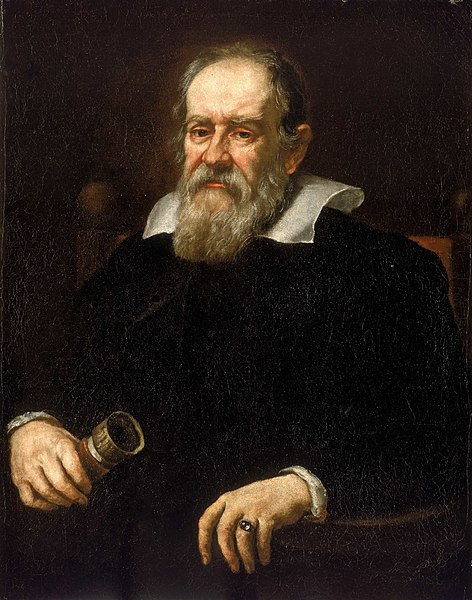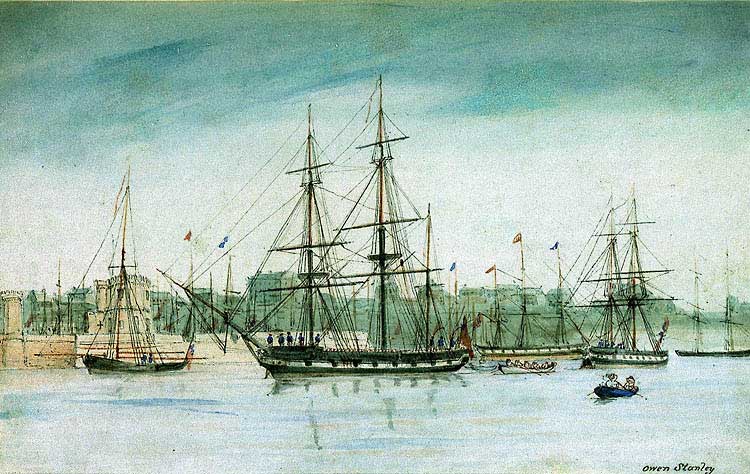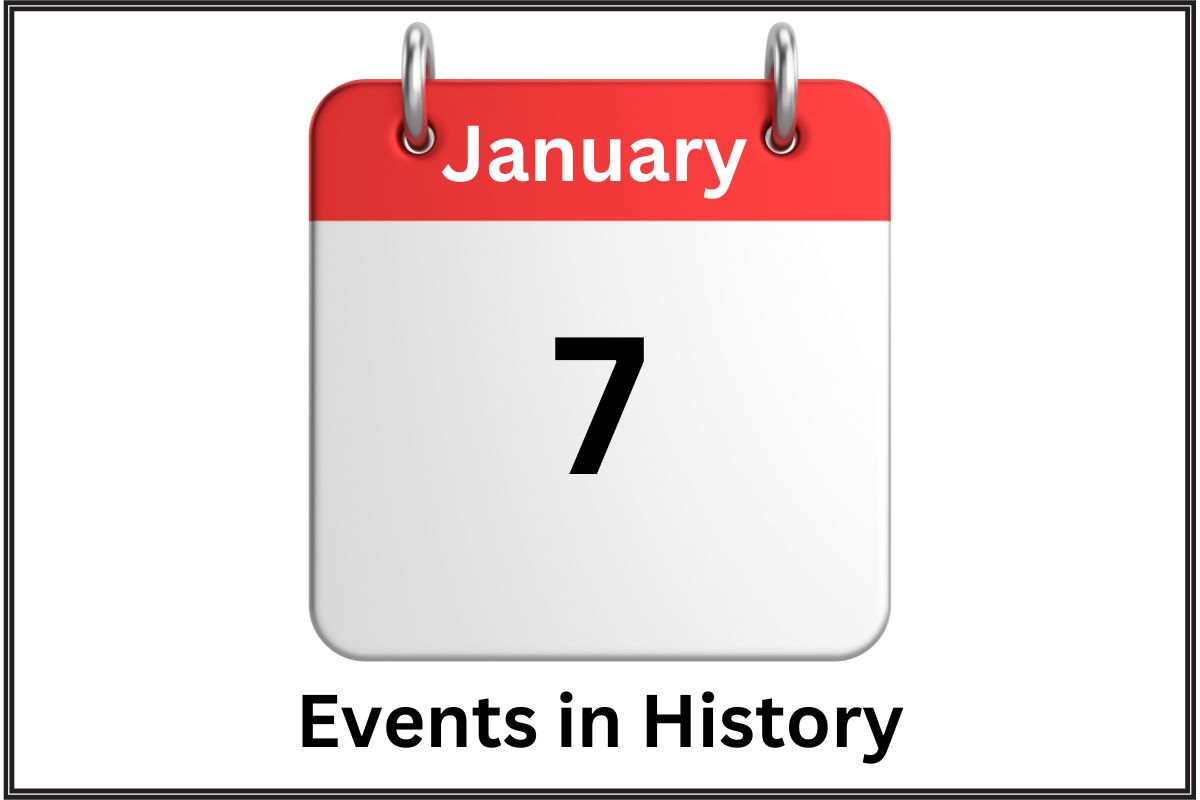The following article presents a detailed exploration of significant historical events that occurred on January 7th, spanning various eras and encompassing a wide array of themes.
These events range from pivotal political developments, groundbreaking scientific discoveries, and technological innovations to key moments in cultural and social history.
Each event highlights a unique aspect of the past, reflecting the diverse tapestry of human history and its impact on the world we live in today. The article provides a chronological journey through these events, offering insights into the circumstances and consequences of each moment in history.
January 7th Events in History
49 BC – The Roman Senate declares Caesar a public enemy unless he disbands his army
On this day, the Roman Senate declared Julius Caesar a public enemy unless he disbanded his army. This was a pivotal moment in Roman history, marking the start of a civil war. Caesar, who was stationed in Ravenna with his army, faced a critical decision.
Also Read: January 6 – On this Day in History
His choice to cross the Rubicon River with his army led to a direct conflict with the Senate and Pompey, signifying the end of the Roman Republic and the beginning of the Roman Empire.

1325 – Afonso IV becomes King of Portugal
Afonso IV ascended to the throne of Portugal on this day. His reign was marked by a series of conflicts within his family and with Castile.
One of the notable moments of his reign was his involvement in the death of Inês de Castro, the lover of his son Pedro. This event later influenced Portuguese literature and culture.
1558 – French troops retake Calais, the last continental possession of England
On January 7, 1558, French troops led by Francis, Duke of Guise, captured Calais from the English, ending England’s continental presence in what is now modern France.
Also Read: January 8th Events in History
Calais had been under English control since 1347 and was the last foothold of the English Kingdom on the continent. This loss was a significant blow to English prestige and marked a turning point in the Hundred Years’ War.
1608 – Fire destroys Jamestown, Virginia
A devastating fire on this date in 1608 destroyed much of Jamestown, the first permanent English settlement in the Americas, founded in 1607 in what is now Virginia.
This event was a major setback for the settlers, who struggled with harsh conditions, including disease, malnutrition, and conflicts with Native American tribes.
1610 – Galileo Galilei makes his first observation of the four Galilean moons
Galileo Galilei made his first observation of the four largest moons of Jupiter – Io, Europa, Ganymede, and Callisto – on January 7, 1610, using a telescope.
This discovery was groundbreaking as it provided evidence that not all celestial bodies revolved around the Earth, supporting the Copernican theory of heliocentrism and challenging the geocentric view of the universe which was widely accepted at that time.

1708 – Battle of Zlatoust and siege of Yelabuga during the Bashkir rebellion
The Battle of Zlatoust was part of the Bashkir Rebellion of 1704-1711 against the Tsardom of Russia. This period saw a series of confrontations between Bashkir and Tatar rebels and Russian government troops.
In 1708, not only did the Battle of Zlatoust occur, but the Bashkir rebels also besieged Yelabuga. These events were indicative of the broader struggle in the region, where indigenous groups resisted Russian expansion and the imposition of Russian authority.
1738 – Peace treaty signed between Peshwa Bajirao and Jai Singh II after Maratha victory in the Battle of Bhopal
This peace treaty marked the end of hostilities between the Maratha forces led by Peshwa Bajirao and Jai Singh II. The Battle of Bhopal, which preceded this treaty, was a significant military engagement where the Marathas demonstrated their military prowess.
The treaty cemented Maratha influence in central India and was a key event in the expansion of the Maratha Empire.
1782 – The first American commercial bank, the Bank of North America, opens
The Bank of North America, opened on this day, was the first commercial bank in the United States. It was chartered by the Confederation Congress, reflecting the need for a national banking system to address the financial chaos of the Revolutionary War period.
Its establishment played a crucial role in stabilizing the economy and establishing a standardized currency in the young nation.
1785 – Jean-Pierre Blanchard and John Jeffries travel from Dover, England, to Calais, France, in a gas balloon
This event marked the first aerial crossing of the English Channel in a gas balloon. Frenchman Jean-Pierre Blanchard and American John Jeffries navigated from Dover, England, to Calais, France.
This journey was a remarkable feat in the early history of flight, demonstrating the potential of balloons for long-distance travel and exploration.

1835 – HMS Beagle, with Charles Darwin on board, anchors off the Chonos Archipelago
The HMS Beagle, with Charles Darwin aboard, anchored off the Chonos Archipelago on this day during its second survey expedition.
Darwin’s observations and collections during the voyage of the Beagle played a critical role in the development of his theory of evolution by natural selection. The journey was fundamental in shaping Darwin’s understanding of the natural world.
1867 – The Kingstree jail fire kills 22 freedmen in South Carolina
This tragic event occurred in Kingstree, South Carolina, during the Reconstruction era. A fire engulfed the local jail, resulting in the deaths of 22 freedmen who were trapped inside.
The incident highlighted the harsh conditions and dangers faced by African Americans in the post-Civil War South, especially in places where they were detained or incarcerated.
1894 – Thomas Edison makes a kinetoscopic film of someone sneezing, and William Kennedy Dickson receives a patent for motion picture film
On this day, Thomas Edison made a kinetoscopic film of a person sneezing, showcasing the potential of motion pictures for capturing real-life events.
Additionally, his employee William Kennedy Dickson received a patent for motion picture film. These contributions were significant in the development of the film industry and motion picture technology.
1904 – The distress signal “CQD” is established
The distress signal “CQD” was established on January 7, 1904. It was one of the first codes used to signal a life-threatening emergency at sea.
However, this signal was later replaced by “SOS” in 1906. The introduction of “CQD” marked an important step in the development of international communication standards for safety.
1907 – A workers riot in Rio Blanco, Veracruz
This event was a significant labor strike that turned violent in Rio Blanco, Veracruz, Mexico. Workers rioted to demand better working conditions, leading to several casualties.
This incident is remembered as a key moment in the history of labor movements in Mexico and reflects the broader social and economic challenges of the early 20th century.
1919 – Montenegrin guerrilla fighters rebel against the planned annexation of Montenegro by Serbia
On January 7, 1919, Montenegrin guerrilla fighters rebelled against the planned annexation of Montenegro by Serbia following World War I.
This rebellion, though ultimately unsuccessful, was a crucial episode in the region’s history, reflecting the complex national and political tensions in the Balkans following the collapse of empires after the war.
1920 – The New York State Assembly refuses to seat five duly elected Socialist assemblymen
In a significant political controversy, the New York State Assembly refused to seat five Socialist assemblymen who were duly elected.
This action reflected the tense political climate of the time, particularly the Red Scare, a period marked by fear of radical socialism and communism in the United States.
The event was a notable example of the challenges faced by leftist movements in early 20th-century American politics.
1922 – Dáil Éireann ratifies the Anglo-Irish Treaty
The Dáil Éireann, the legislative assembly of the Irish Republic, ratified the Anglo-Irish Treaty by a vote of 64 to 57. This treaty ended the Irish War of Independence and established the Irish Free State, a self-governing dominion of the British Empire.
The ratification of the treaty was a pivotal moment in Irish history, leading to the Irish Civil War as it divided the Irish nationalist movement between pro-treaty and anti-treaty factions.
1927 – The first transatlantic commercial telephone service is established from New York City to London
This day marked the inauguration of the first transatlantic commercial telephone service between New York City and London.
This technological breakthrough significantly enhanced international communication, reducing the barriers of distance and time. It was a landmark event in the history of telecommunications, paving the way for global connectivity.
1928 – A flood of the River Thames kills 14 people in London
A disastrous flood occurred along the River Thames in London, resulting in the deaths of 14 people and causing extensive damage.
This flood was one of the worst natural disasters in London’s history at the time and underscored the need for improved flood control measures in urban areas. The event had a lasting impact on London’s infrastructure and emergency response planning.
1931 – Guy Menzies flies the first solo non-stop trans-Tasman flight
Australian aviator Guy Menzies completed the first solo non-stop trans-Tasman flight, flying from Sydney, Australia, to Hawke’s Bay, New Zealand.
This feat was a remarkable achievement in early aviation history, demonstrating the potential for long-distance solo flights. Menzies’ daring journey contributed to the advancement of aviation technology and the understanding of long-haul flight capabilities.
